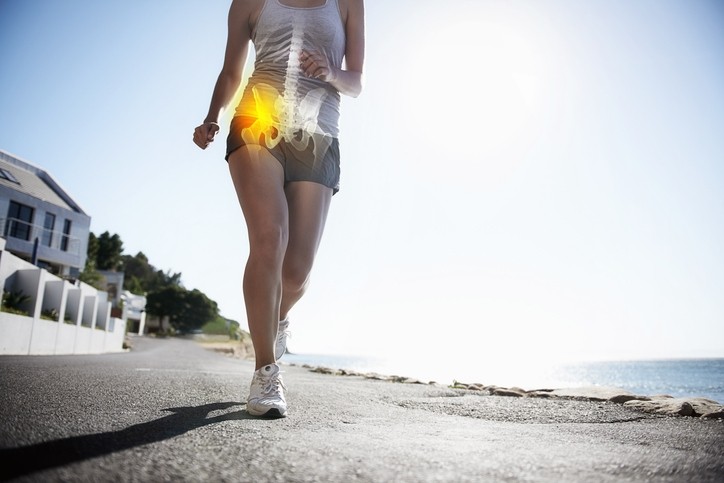Women’s health webinar unveils major white space for bone health support

Lina Chan, director of women’s health at retail giant Holland & Barrett, noted during the webinar that along with having a longer life expectancy, women are likely to spend more time in ill-health than men.
“We need to help women move away from disease states to a much more proactive attitude, and the way to do that is start educating them a lot sooner,” she said.
“The reality is, if we look at the key killers for women, it's cardiovascular disease, it's dementia, it’s falling and breaking a femur and not being able to move, and these are all, in a way, conditions that we should be able to prevent if we can start engaging women.”
Bone health
Sharon Madigan PhD, head of performance nutrition at the Sport Ireland Institute, shared concerns that athletes often lack understanding of where to attain specialist knowledge, and often medical professionals fail women in their advice.
“The worry is that females go first to their GP or doctor, and the only protocol is to put them on the oral contraceptive pill (OCP), but we know that is a mismanagement of some symptoms,” she stated. “We need bigger, wider education around medication, as the OCP can mask what's going on.”
The obstacle to information was heightened during the pandemic, Madigan explained, noting that many athletes increased training volume without a corresponding rise in calorie intake due to a misconception that calories and carbohydrates are unhealthy, which has led to an increase in injury.
“We're seeing a lot of injuries, particularly bone health of young women being significantly impacted by the exclusion of nutrients,” she noted. "Females don't seem to engage in any preventive action unless they appear to have some type of symptoms and this for me is worrying. For example, cardiovascular disease and bone health will be two of the factors that will kill a woman getting older, but these are the things you can't see and feel until it's too late.
“I see far too many younger women, and I'm talking about the ages of 14 into early 20s that have bone densities of ladies who are in their 80s or 90s, and this is going to increase further because we are vilifying certain foods.”
Marit Veenstra, communication and innovation strategist at brand consultancy company Healthy Marketing Team, added that there is a considerable opportunity there for companies to tap into the joint health for women.
“According to consumer data, we see that the joint pain is or other pain, especially when women are aging, is an area where they have really high health concerns, but are not really addressing it with supplements," she said.
Communication and personalization
The key to improving communication is for brands to emphasize the significance of scientific research, Veenstra explained. To foster consumer trust, brands must justify their claims as consumers are harboring extreme skepticism.
“There's so much choice, and it becomes so difficult for the consumer to understand which product is right for them, and often they leave a store empty-handed,” she noted. “The key is creating a connection to the consumer.”
Chan explained that part of the challenge is breaking taboos in women’s health, adding that personalized approaches will ultimately lead to better outcomes due to the individual nature of fluctuating hormones.
“Personalization is 100% going to be the key to creating positive experiences, and I think particularly for women's health, personalization along the hormonal journeys—not just within the menstrual cycle but across all life stages that include puberty, fertility, pregnancy, postpartum, perimenopause and menopause," she said.
Veenstra criticized brands for treating women as a homogeneous group noting: "No woman is the same, and I think this is actually where a lot of brands go wrong, where they treat women as one and where they take a very generic approach in their communication."
Gut health
Panelist Emily Prpa PhD, science manager at Yakut UK & Ireland, argued that research into women’s health and gut health only scratches the surface of understanding as researchers are particularly likely to exclude women from gut health studies.
She highlighted the importance of this research area, given that the gut microbiome in females changes significantly throughout life stages, which can impact gastrointestinal function and symptoms.
"From when women reach puberty, to pregnancy, to later on when they reach menopause, we see that the composition of their gut microbiota does change and that there's very much this bidirectional relationship between the gut microbiome and female sex hormones," she said.
In addition, conditions like irritable bowel syndrome (IBS) and endometriosis are more prevalent in women, with gut dysbiosis and inflammation linked to increased estrogen levels in endometriosis.
"I think when it comes to the gut microbiome, the personalized approach is necessary, as everybody’s gut microbiome is unique to them,” Prpa added. “While the gut ecosystem is so dynamic and complex, so we don’t yet have a way to intervene, I hope it continues on an upward trajectory where we can see increased personalized interventions."
Madigan pointed out that the growing number of female athletes should translate to improved research.
"We’re now seeing bigger populations of females in elite sports, with females making up 50% of the Olympic Games this coming summer,” she said. “What you've now got is a body of individuals that we conduct can research on that’s not just participatory.”













